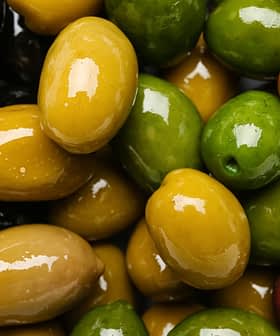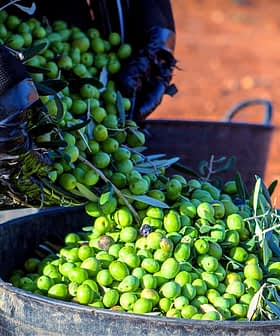Mediterranean Diet May Prevent Memory Loss and Dementia Symptoms

A study in the American Academy of Neurology suggests that following the Mediterranean diet at a younger age may help mitigate symptoms of dementia and memory loss conditions often found in older people, by interfering with the build-up of proteins linked to Alzheimer’s disease. Researchers found that higher adherence to the MedDiet was correlated with larger medio temporal gray matter volume, better memory, and less amyloid and tau pathology, suggesting that the diet could be a protective factor against memory decline and cognitive dysfunction later in life.
According to a study published in the American Academy of Neurology, the symptoms of some types of dementia and memory loss conditions often found in older people could be mitigated by following the Mediterranean diet at a younger age.
The researchers found that consuming foods commonly associated with the MedDiet may interfere with the build-up of two proteins into amyloid plaques and tau tangles, both of which are heavily linked with Alzheimer’s disease.
(The) mountain of evidence continues to build that you are what you eat when it comes to brain health.
The scientists examined levels and brain efficiency in 169 cognitively normal patients and 343 patients at higher risk of developing Alzheimer’s disease and determined patients’ adherence to the MedDiet. The average age of participants was 69.
Using cognitive tests, MRI scans and cerebrospinal fluid examinations, researchers investigated the correlation between the degree of adherence to the MedDiet and its effects on the nervous system.
See Also:Health NewsHigher MedDiet adherence was correlated with larger medio temporal gray matter volume, better memory and less amyloid and tau pathology, the researchers wrote.
More specifically, medio temporal volume mediated the association between MedDiet and memory. Finally, adherence to the MedDiet favorably moderated the associations between amyloid, tau and medio temporal atrophy.
“Our findings corroborate the view of the MedDiet as a protective factor against memory decline and medio temporal atrophy,” wrote the scientists. “Importantly, they suggest that these associations might be explained by a decrease of amyloidosis and tau-pathology.”
“Longitudinal and dietary intervention studies should further examine this conjecture and its treatment implications,” they added.
The correlation between adherence to the MedDiet and its beneficial effects on brain efficiency and longevity has long been the focus of other research. Most say that the MedDiet is a preventative tool against the manifestation of dementia later in life.
The regular consumption of extra virgin olive oil – one of the main components of the MedDiet – has also been shown to mitigate some of the conditions that might bring cognitive dysfunction in older people.
“[The] mountain of evidence continues to build that you are what you eat when it comes to brain health,” Richard Isaacson, the director of the Alzheimer’s Prevention Clinic at Weill Cornell Medicine and New York-Presbyterian Hospital who was not involved in the study, told CNN.
“In this important study, researchers showed that it’s possible to not only improve cognitive function, most specifically memory, but also reduce the risk for Alzheimer’s disease pathology,” he added.









